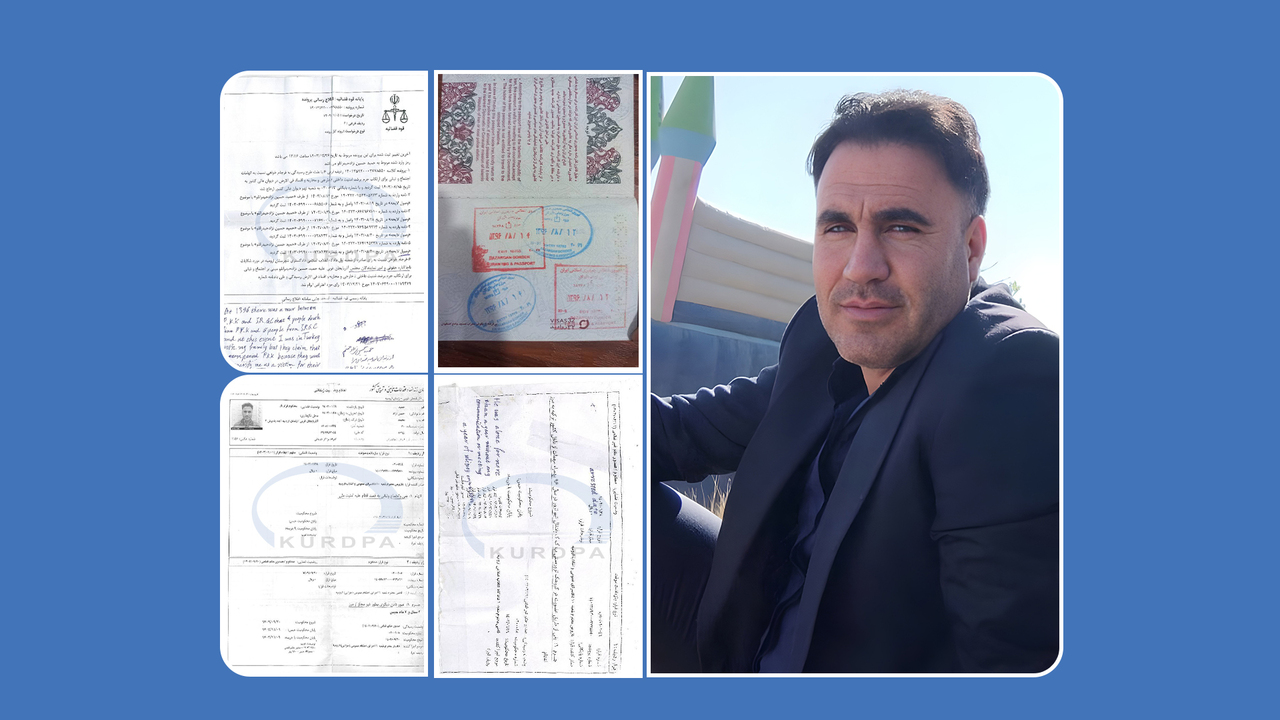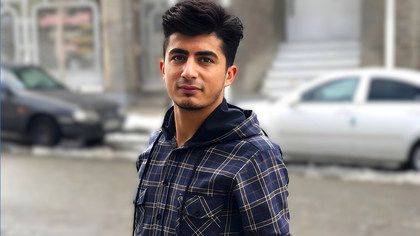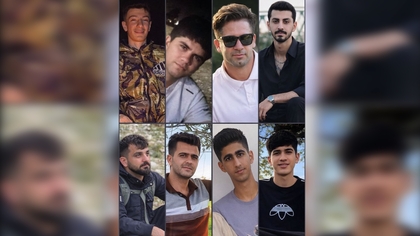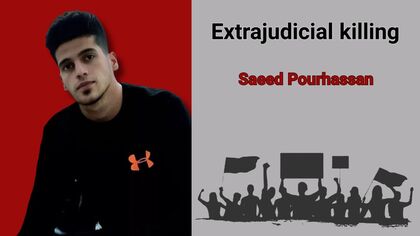Silenced Evidence, a Voice Cut Off: Hamid Hosseinnezhad’s Final Efforts and His Family’s Cry Today

As the family of Hamid Hosseinnezhad Heydaranlou gathered outside Urmia Central Prison early this morning, April 16, 2025, demanding “Where is your evidence?” in protest of his imminent execution, only hours remain until the scheduled time for carrying out the death sentence. In a video released online, his wife can be seen telling security forces: “I’m not leaving. Not until you show us the evidence.” Meanwhile, authorities are reportedly confiscating mobile phones and dispersing the gathering by force.
The Voice That Was Never Heard: Suppressed Testimony and Missing Audio Evidence:
Among the material that was supposed to be released soon were Hamid’s own recordings—a planned audio file in which he detailed his torture, innocence, and forced confessions. According to his family, who visited him last week, Hamid personally handed over documents related to his case, including legal defenses and court proceedings. He had planned to record a final message to speak out against months of solitary confinement, denial of legal representation, and coercion.
However, shortly after that meeting, and unexpectedly, he was transferred to solitary confinement again and issued an expedited execution order, robbing him of the chance to tell his story.
For over a year, the family’s attempts to bring attention to the case were systematically suppressed. Security forces repeatedly threatened them with phrases like “there’s no need to make noise” and warned that legal steps would proceed regardless. But now, with execution just hours away, silence is no longer an option for survival.
Passport Stamp Confirms Innocence: Hosseinnezhad Was in Turkey During the Alleged Clashes:
Hamid’s official passport shows that he legally exited Iran on November 3, 2017 (12 Aban 1396) through the Bazargan border crossing and re-entered on November 3, 2017 (12 Aban 1396). This confirms that during the border skirmish in Chaldoran, Hamid was in Turkey—a fact recorded in the Iranian border control system.
Furthermore, in official statements made by Hossein Zolfaqari, then Deputy Minister of Interior for Security Affairs, the armed confrontation between IRGC forces and the PKK occurred on Friday, November 3, 2017 in Chaldoran. No mention of Hosseinnezhad appears in any official report.
Therefore, the passport stamps, when compared with the date of the conflict provided by the government itself, invalidate any claim that Hamid was present during the clash. The charge of participating in armed conflict and the death sentence based on that claim violates the presumption of innocence and lacks legal foundation.
Formal Judicial Records: Unanswered Defense Briefs, Denial of Rights:
A judiciary document titled “Case Notification”, dated March 24, 2025 (5 Farvardin 1404), outlines the legal process in Hamid’s case (Case No. 140353630775855). It confirms the charge of “waging war against the state” (moharebeh), collusion against national security, and corruption on earth—filed by Iran’s Law Enforcement Command—and prosecuted by Branch 1 of the Urmia Revolutionary Court.
The document also notes multiple legal briefs submitted between autumn and winter of 2024. Despite these formal filings—prepared by Hamid or his attorneys—they were ignored, and no revisions or meaningful reviews were conducted, revealing judicial apathy toward the defendant’s legal rights.
A handwritten note in English, apparently written by a cellmate (as Hamid was illiterate), reads:
“In 2017, there was a fight between PKK and IRGC. Four PKK and eight Iranian forces were killed. I was in Turkey with my family at that time, but they say I helped PKK to use me as their victim.”
Another note in Farsi, also from a fellow prisoner, reads:
“I am Hamid Hosseinnezhad from Urmia Prison. Let my voice reach the world so my execution can be stopped.”
These deeply personal messages serve as poignant testimony of innocence and the denial of justice, as the judiciary continues to move toward execution without reconsideration.
Pre-Trial Interrogation Record: Solitary Confinement, No Lawyer, Preliminary Death Sentence:
A document issued by Branch 10 of the Public and Revolutionary Prosecutor’s Office of Urmia on September 10, 2024, shows that Hamid was initially detained on charges of “rebellion” (baghi) and even at this preliminary stage, a death sentence was recommended.
A marginal note—again in English, written by another inmate—describes:
“He was more than a year in solitary without any call or visit with his family.”
This note encapsulates what international legal experts would classify as psychological torture and inhumane treatment.
The document reveals that even during the pre-trial phase, Hamid was deprived of legal counsel, family contact, and the ability to defend himself, and that the push for a death sentence predated any formal trial or public hearing, underscoring the politically motivated nature of his prosecution.
Prison Report: Layered Judicial Pressure and Dual Legal Cases:
An official report from Urmia Central Prison provides administrative and legal details about Hamid’s status. Two separate cases are listed:
Primary case involving the charge of rebellion, prosecuted by the Revolutionary Court of Urmia, resulting in a death sentence.
Secondary case concerning illegal border crossing assistance, for which he received 2 years and 2 months of discretionary imprisonment.
This parallel prosecution—one based on national security, the other on border infractions—illustrates the layered legal pressure against Hamid.
The document also confirms that Hamid has been detained since April 12, 2023, and was held in Ward 2, Reception Section. The inmate ID, case numbers, and prison details match those in the other documents, making this one of the most verifiable sources of procedural violations in the case.
Imminent Execution, Silenced Protests:
Despite official documents proving innocence, allegations of torture, and repeated legal objections, Hamid Hosseinnezhad now faces imminent execution. The short timeline between final confirmation and execution has left no room for proper legal challenge.
In recent days, his family has:
Protested in front of the prison
Submitted legal documentation
Reached out to religious leaders
Yet security forces have responded with suppression, confiscation of mobile phones, and complete silence.
In this climate of accelerated judicial action and neglect of fundamental rights, the execution of Hamid Hosseinnezhad would constitute a clear case of arbitrary and unjust capital punishment.



